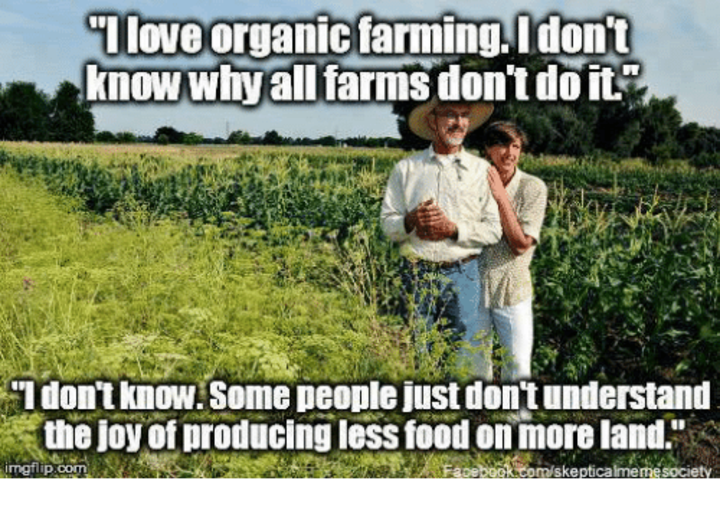Hi, I'm reading The Omnivore's Dilemma, by Michael Pollan. I read his book, In Defense of Food, and really liked it. Very well researched, and well written too. I'm having a much harder time with The Omnivore's Dilemma (he rants about corn for 120 pages so far), but I'll keep going. He does seem to have many good points, and has done a tremendous amount of research.
One of his points is that we seem to be monocropping corn year after year, using fossil fuels to produce synthetic fertility, instead of the older crop rotation of soya bean/corn. I'm not from the corn belt, so I have no idea. How healthy is the soil in a typical corn field?
I'm more "red neck" than "Green Peacer", and I think there are good reasons to use some Ag Chem, and modern equipment. But I do like reading things about sustainable agriculture. And I am a believer in having as light a footprint on the Earth as I can. I'd like to leave my land in better condition than I found it. I think we all would.
I wonder how we're going to feed all these people?
I wonder how we're going to heat our houses if not with fossil fuels (wood/coal/oil/gas)?
I wonder how we're going to cope with migration from hot/dry places to more moderate climates?
I wonder what the benefits to climate change are? There must be some benefits...
I wonder if we can live smaller lives (less of everything)?
There are some pretty dire outlooks from some pretty well-educated folks out there. They're not all quacks... (there are quacks on both sides, I try to ignore those).
Hmm, maybe I should read different books.
Sorry for the long post. How is the soil in a big corn field? I'd really like to know. I have a degree in Agricultural Soil Chemistry.
Thanks,
Troy
One of his points is that we seem to be monocropping corn year after year, using fossil fuels to produce synthetic fertility, instead of the older crop rotation of soya bean/corn. I'm not from the corn belt, so I have no idea. How healthy is the soil in a typical corn field?
I'm more "red neck" than "Green Peacer", and I think there are good reasons to use some Ag Chem, and modern equipment. But I do like reading things about sustainable agriculture. And I am a believer in having as light a footprint on the Earth as I can. I'd like to leave my land in better condition than I found it. I think we all would.
I wonder how we're going to feed all these people?
I wonder how we're going to heat our houses if not with fossil fuels (wood/coal/oil/gas)?
I wonder how we're going to cope with migration from hot/dry places to more moderate climates?
I wonder what the benefits to climate change are? There must be some benefits...
I wonder if we can live smaller lives (less of everything)?
There are some pretty dire outlooks from some pretty well-educated folks out there. They're not all quacks... (there are quacks on both sides, I try to ignore those).
Hmm, maybe I should read different books.
Sorry for the long post. How is the soil in a big corn field? I'd really like to know. I have a degree in Agricultural Soil Chemistry.
Thanks,
Troy


